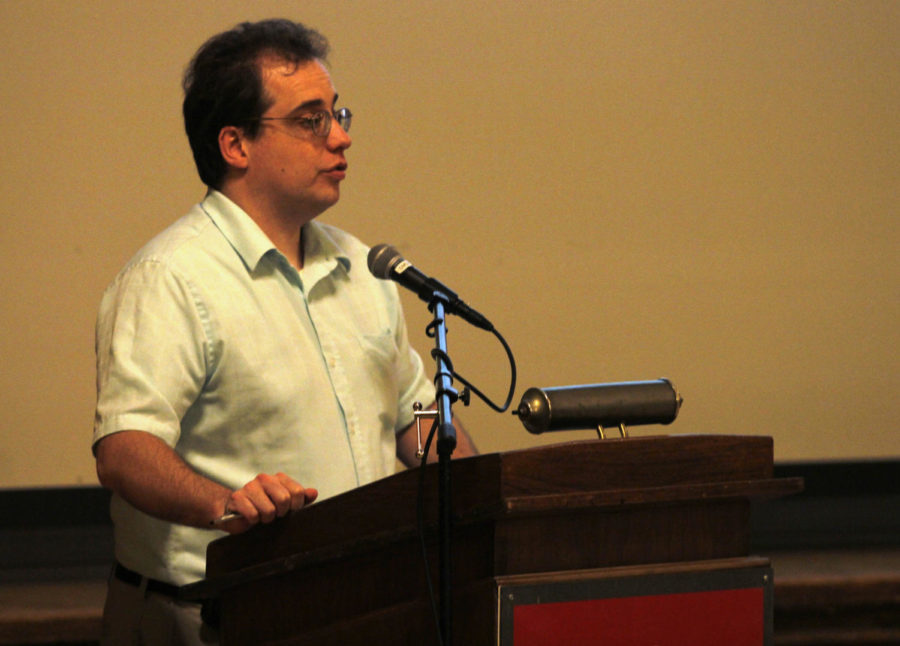Faculty Senate passes new criminal justice major
Korrie Bysted/Iowa State Daily
Tim Bigelow talks about a criminal justice major at this month’s faculty senate meeting, which took place in the Great Hall of the Memorial Union on March 10.
March 11, 2015
The Faculty Senate unanimously approved Iowa State’s new criminal justice major at its meeting Tuesday, clearing it to move forward for approval by the Board of Regents.
Iowa State currently has a criminal justice track within the interdisciplinary studies major. Split between several different departments, the track was created in 2006 with 125 students and has since grown to more than 400.
Tim Bigelow is the chairman of Faculty Senate’s Academic Affairs Council.
“It’s not a formal degree program,” Bigelow said. “It’s like an option that you can take in a general studies area. They want to formalize it and make it a bachelor’s degree.”
Following approval by the regents, the new major will be implemented this fall as part of the Department of Sociology.
“To employers, criminal justice is a much more marketable degree,” Bigelow said. “Our’s is interdisciplinary studies and it’s just not the same. That’s why they want to formalize it and make it a bachelor’s degree.”
The proposed criminal justice bachelor’s degree will emphasize practical applications to society, setting it apart from similar programs at the University of Northern Iowa and the University of Iowa.
Bigelow said Northern Iowa’s criminology program focuses on theory and studying criminal behavior, while Iowa’s targets graduate education. Iowa State’s program may be more successful, Bigelow said, because students are required to have an internship, which makes them more marketable to employers.
Criminal justice is a rapidly expanding field, and 75 percent of graduates from Iowa State’s program find jobs in-state. With a formal major, the university plans to capitalize on this growth.
The Department of Sociology estimates enrollment could reach as many as 540 students in the next seven years.
Rob Wallace, president-elect of the senate, spoke in favor of the major.
“This is finally coming to what we had hoped would happen sometime ago,” Wallace said. “In this case, it’s going to serve a large number of students for a very long period of time.”

















